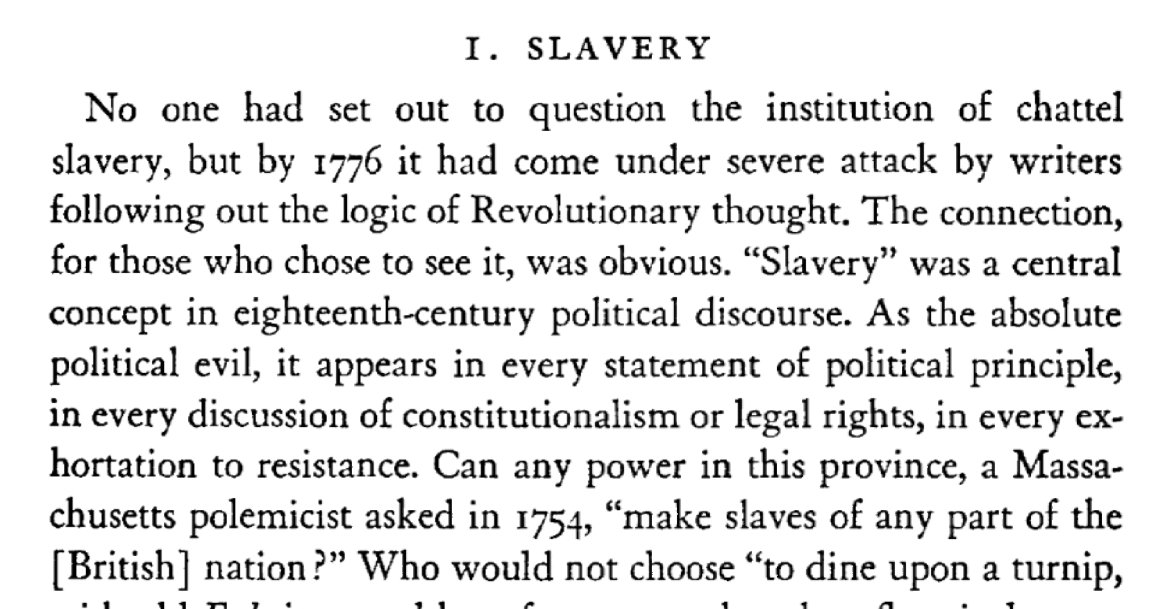
U.S. historian, butter-and-egg man. Author of Beyond Freedom's Reach. Writing tip: INSERT WORDS!
4 subscribers
How to get URL link on X (Twitter) App




https://twitter.com/jimsciutto/status/1333466378100224002This is historical malpractice.

https://twitter.com/ThaddeusRussell/status/1308509144962363395Here's the episode. If you've never heard Barbara Fields speak about racecraft before, you are in for a treat and an education. @ThaddeusRussell #Unregistered


 Historians often invoke contingency to imply that nothing is inevitable. Things could have gone one way or another. The concept goes hand-in-hand with agency, that all things are possible. Except that all things are not possible...
Historians often invoke contingency to imply that nothing is inevitable. Things could have gone one way or another. The concept goes hand-in-hand with agency, that all things are possible. Except that all things are not possible...

https://twitter.com/jennyschuessler/status/1291929219715469313In his landmark book, Ideological Origins of the American Revolution, published in 1967, Bailyn recognized the centrality of the idea of slavery in Anglo-American political thought...


 In contrast to the above, here's a sharp, deeply researched critique of the Morrill Act, which shows that the land grant schools benefitted from indigenous dispossession. hcn.org/issues/52.4/in…
In contrast to the above, here's a sharp, deeply researched critique of the Morrill Act, which shows that the land grant schools benefitted from indigenous dispossession. hcn.org/issues/52.4/in…


https://twitter.com/arothmanhistory/status/1240396359364198404Will first appears in the Confessions at a secret meeting of the small band of rebels. Nat asks him why he is there and receives a satisyfing answer...


 Lincoln might not beat Douglas in the election, but he's got potential. Would make a great postmaster general for Fremont.
Lincoln might not beat Douglas in the election, but he's got potential. Would make a great postmaster general for Fremont.



 #GUhist286 10. Day 1. Another definition of slavery: In January 1865, Rev. Garrison Frazier, a freedman, told U.S. leaders Stanton and Sherman that "Slavery is, receiving by irresistible power the work of another man, and not by his consent.” freedmen.umd.edu/savmtg.htm
#GUhist286 10. Day 1. Another definition of slavery: In January 1865, Rev. Garrison Frazier, a freedman, told U.S. leaders Stanton and Sherman that "Slavery is, receiving by irresistible power the work of another man, and not by his consent.” freedmen.umd.edu/savmtg.htm


